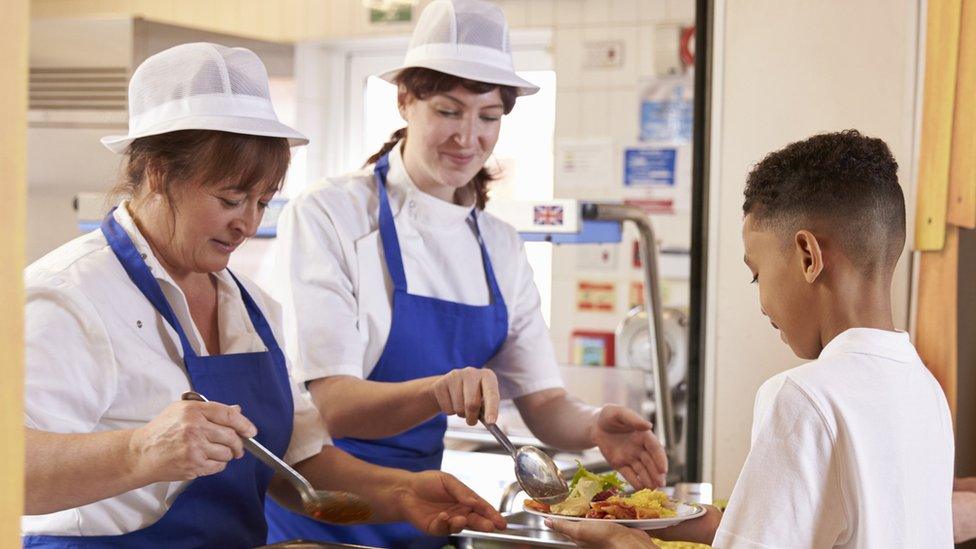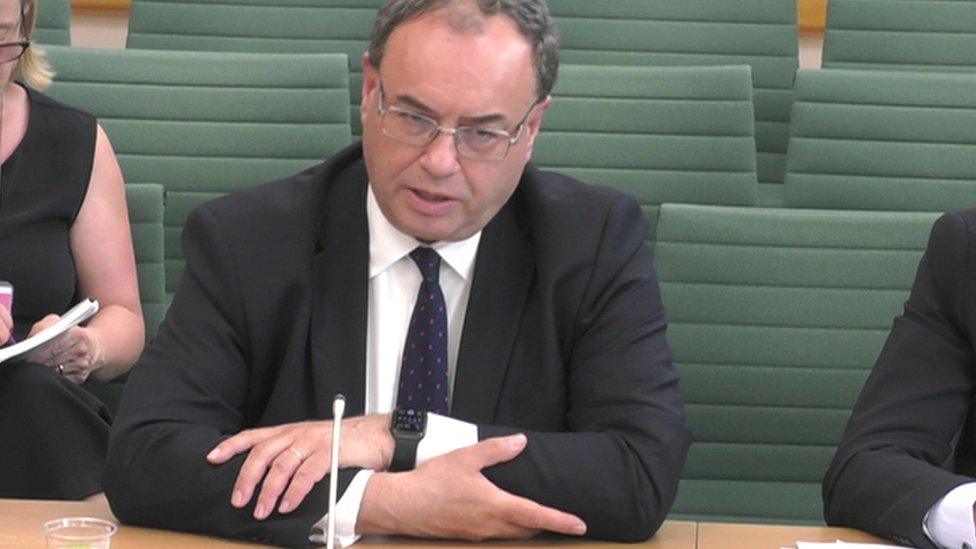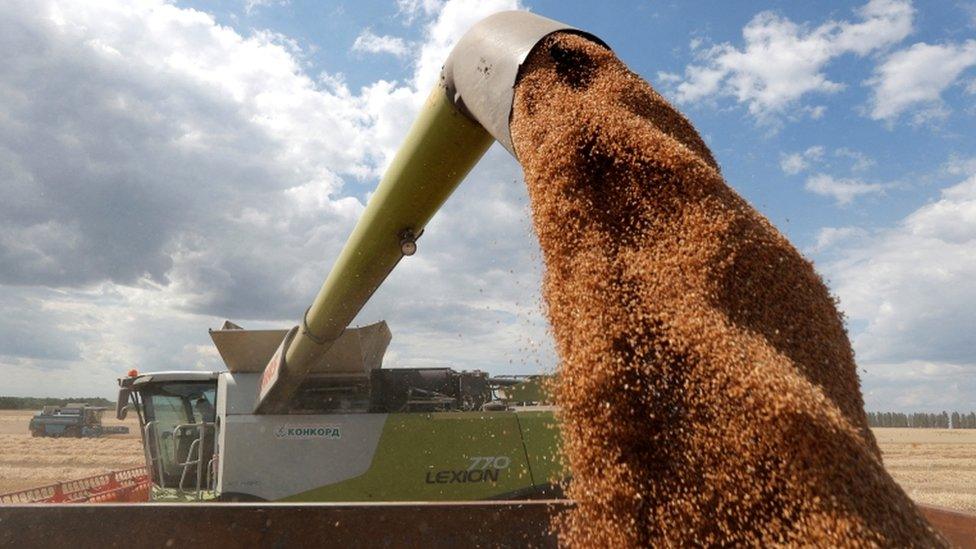Warning over shrinking school meals as prices rise
- Published

School caterers could be forced to serve smaller portions or use cheaper ingredients due to rising prices, a major food wholesaler has warned.
Andrew Selley, boss of Bidfood, said caterers would face "difficult decisions" as inflation soars.
The warning comes after Bank of England governor Andrew Bailey said food price rises were a "major worry".
However, Marks & Spencer chairman said he expected the sharp rate at which prices were rising to be temporary.
"I do think it's important to say before we get too panicked, most of this inflation is probably transitory," Archie Norman told the BBC's Today programme.
Food prices have surged in recent months as the pandemic and war in Ukraine have driven up the costs of energy, shipping and raw materials.
Mr Norman said it "wouldn't be surprising" see food price inflation over the course of the year "running towards 8 to 10%".
Bidfood's Mr Selley said "all of the inputs into the food supply chain" had increased over the past nine months, putting pressure on the firm, which caters to organisations such as schools, hospitals and NHS trusts.
"We are seeing things like sunflower oil is double the price it was a year ago, which has pushed into other oils like vegetable oil, rape seed oil, even palm oil. Bakery items are up 20-30%."
Mr Selley called on the government to ensure funding for free school meals kept pace with rising prices, saying they were "vital" for children's "education and attainment".
A total of 1.7 million children currently qualify for free school meals in England.
"Over the last 10 years the amount of money the government provides for free school meals has only gone up by 1.7%, which obviously was well behind inflation even before this last 12 months," Mr Selley said.
"We can see that is going to leave some difficult decisions for school caterers [in the months ahead]. Either they are going to potentially serve smaller portions or cheaper ingredients which isn't going to be good for the children."
The government said it recognised the pressures some schools could face, adding it had "given them the autonomy to agree individual contracts with suppliers and caterers, using their increased core funding".
"This funding has gone up by £4bn in 2022-23 alone - a 7% increase in cash terms per pupil from last year," a statement added.
"Schools also have flexibility in the food they offer, under the School Food Standards. If a particular product is not readily available for any reason, the standards give schools and caterers the freedom to substitute in similar foods that are available."
'Apocalyptic'
Inflation - the rate at which prices rise - is at a 30-year high of 7% and forecast to hit 9% when figures for April are released on Wednesday.
The Bank of England has faced criticism for not doing enough to tackle the rising cost of living, but the governor defended its response at a committee hearing on Monday.
Apologising for sounding "apocalyptic", he told MPs that the war in Ukraine was having a big impact on food supplies both in the UK and elsewhere.

Andrew Bailey was questioned by MPs on Monday
"There's a lot of uncertainty around this situation," he added.
However, Marks & Spencer's Mr Norman told the BBC that he would not call the situation "apocalyptic."
"Do you think oil prices are going to be higher or lower is a year's time? I don't know, but there's a good chance they'll be lower. Freight rates are going to come down, Wheat production in 2023 will probably be higher than 2022," he said.
"Before we do anything too drastic we need to recognise the nature of the problem we are dealing with is a serious one, but it is probably a 12-month problem not a 36 month problem."
Mr Norman said although higher prices were "very negative for consumer discretionary income", wages had been rising "quite well" in the UK and that M&S had given its staff a 5% increase.
The former Conservative MP said UK spending was "pretty good" due to customers having "a lot of stored up savings".
However, he admitted things would get worse before they get better, with the energy price cap expected to rise sharply again in October.
"The crunch is not going to be now, the crunch is going to be in the autumn when people come back from their holidays, they've spent their money and there's nothing left in the kitty."

Have you been affected by any of the issues raised here? Have you seen your child's school meals get smaller? You can get in touch by emailing haveyoursay@bbc.co.uk, external.
Please include a contact number if you are willing to speak to a BBC journalist. You can also get in touch in the following ways:
WhatsApp: +44 7756 165803, external
Tweet: @BBC_HaveYourSay, external
Or fill out the form below
Please read our terms & conditions and privacy policy
If you are reading this page and can't see the form you will need to visit the mobile version of the BBC website to submit your question or comment or you can email us at HaveYourSay@bbc.co.uk, external. Please include your name, age and location with any submission.

Related topics
- Published16 May 2022

- Published16 May 2022